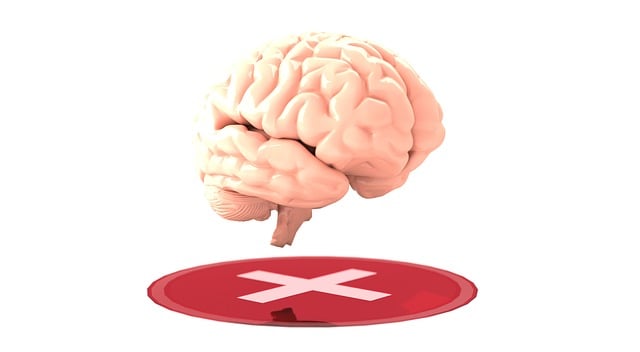Elderly individuals with PTSD face unique challenges, such as physical complaints and social withdrawal, rather than typical flashbacks. Effective therapy requires recognizing these hidden symptoms, educating caregivers and healthcare providers, and implementing tailored depression prevention strategies. Public awareness campaigns, using engaging narratives and digital platforms, destigmatize mental health and encourage early detection. These initiatives empower elders, promote stress management, and highlight accessible trauma support services. Online coaching programs deliver evidence-based therapy directly to elders' homes, enhancing continuity of care. Evaluating campaign success involves measuring mental wellness engagement, crisis intervention guidance, policy analysis, and long-term community behavior changes.
In today’s world, public awareness campaigns play a pivotal role in addressing mental health issues among elders, including post-traumatic stress disorder (PTSS). This article explores the comprehensive development of such campaigns, focusing on PTSS specifically. We delve into understanding the symptoms and impact of this often-overlooked condition in older adults. By examining effective communication strategies and leveraging digital platforms, we aim to enhance access to therapy for elders, ensuring targeted reach and lasting awareness.
- Understanding Elderly Post-Traumatic Stress Disorder: Symptoms and Impact
- The Role of Public Awareness Campaigns in Educating and Supporting Elders
- Designing Effective Communication Strategies for Targeted Reach
- Leveraging Digital Platforms to Amplify Mental Health Initiatives
- Measuring Success: Evaluating the Impact and Longevity of Awareness Programs
Understanding Elderly Post-Traumatic Stress Disorder: Symptoms and Impact

Elderly individuals, often overlooked in discussions about post-traumatic stress disorder (PTSD), can experience significant mental health challenges after traumatic events. Understanding their unique symptoms and impacts is crucial for developing effective therapy for elders with PTSD. Unlike younger adults, seniors may manifest different signs of distress, such as physical complaints, cognitive difficulties, or social withdrawal, rather than the more typical flashbacks and nightmares. This can make it harder to recognize and diagnose PTSD in this demographic.
The community outreach program implementation focused on raising awareness about these hidden symptoms is essential. Educating caregivers, healthcare providers, and family members about the specific emotional regulation challenges faced by older adults with PTSD can facilitate early intervention. Additionally, addressing depression prevention strategies tailored to seniors is vital as chronic stress can exacerbate existing health conditions and contribute to depression. Effective therapy for elderly individuals with PTSD should incorporate these unique considerations to promote healing and improve their overall well-being.
The Role of Public Awareness Campaigns in Educating and Supporting Elders

Public awareness campaigns play a pivotal role in educating and supporting elders, addressing critical issues like post-traumatic stress disorder (PTSD). These campaigns serve as powerful tools to raise consciousness about the unique challenges faced by this demographic, many of whom have lived through significant historical events or personal traumas. By highlighting the prevalence and impact of PTSD among elders, these initiatives encourage early detection and prompt intervention, which are crucial for effective therapy.
Through engaging narratives, educational resources, and confidence-boosting messages, public awareness campaigns can destigmatize mental health issues, encouraging elders to openly discuss their experiences and seek necessary support. Furthermore, they often incorporate practical conflict resolution techniques tailored to the needs of an aging population, fostering a sense of empowerment and well-being. This holistic approach not only improves mental health outcomes but also enhances the overall quality of life for our elders, ensuring they receive the care and respect they deserve.
Designing Effective Communication Strategies for Targeted Reach

Designing effective communication strategies is paramount when crafting public awareness campaigns aimed at reaching specific demographics, such as elders struggling with post-traumatic stress disorder (PTSD). Tailoring messages to resonate with this audience requires a deep understanding of their unique challenges and preferences. For instance, using relatable language that acknowledges the impact of trauma on aging populations can foster trust and encourage engagement.
Incorporating stress management techniques and promoting self-care routine development for better mental health are essential components within these strategies. Highlighting accessible trauma support services tailored specifically for elders can provide a sense of hope and empowerment, ultimately enhancing their well-being. By employing sensitive and targeted communication approaches, awareness campaigns can effectively reach and assist those in need, contributing to a more supportive and informed society.
Leveraging Digital Platforms to Amplify Mental Health Initiatives

In today’s digital era, leveraging online platforms offers immense potential for public awareness campaigns focused on mental health initiatives. Social media and digital tools can help break down stigma surrounding emotional well-being, especially for vulnerable populations like the elderly who may struggle with post-traumatic stress disorder (PTSD). Through targeted campaigns, engaging content, and interactive features, organizations can connect with a broader audience, providing valuable resources and support for those in need.
Digital platforms allow for the development of innovative mental wellness coaching programs that offer accessible therapy options for elders. By utilizing live streaming, video calls, and user-friendly apps, mental health professionals can deliver evidence-based techniques to promote emotional well-being directly into homes. This approach ensures continuity of care while catering to the unique needs of an aging population, thereby enhancing overall public awareness campaigns development in the realm of mental health support.
Measuring Success: Evaluating the Impact and Longevity of Awareness Programs

Evaluating the success of public awareness campaigns is a multifaceted process that goes beyond initial reach or attendance figures. To truly gauge impact, consider both short-term and long-term effects, particularly in sensitive areas like post-traumatic stress disorder (PTSD) among elders. Mental wellness podcast series production can offer valuable insights into community engagement, while crisis intervention guidance ensures immediate support for those affected by the campaign’s message.
Longevity is another crucial aspect; programs that spark conversation and encourage mental health policy analysis and advocacy have sustained impacts. Regular follow-ups and post-campaign assessments help identify changes in public perception and behavior related to issues like PTSD. By combining these evaluation methods, awareness programs can be refined to offer more effective therapy for elders with PTSD, contributing to broader improvements in mental health support systems.
Public awareness campaigns play a pivotal role in educating communities about elder post-traumatic stress disorder (PTSD), offering crucial support and promoting understanding. By leveraging digital platforms, targeted communication strategies, and effective measurement techniques, we can ensure that these initiatives resonate with elders in need. Through increased exposure to therapy options for PTSD among the elderly, such campaigns have the potential to foster a more compassionate society, where mental health is prioritized and supported at every turn.














